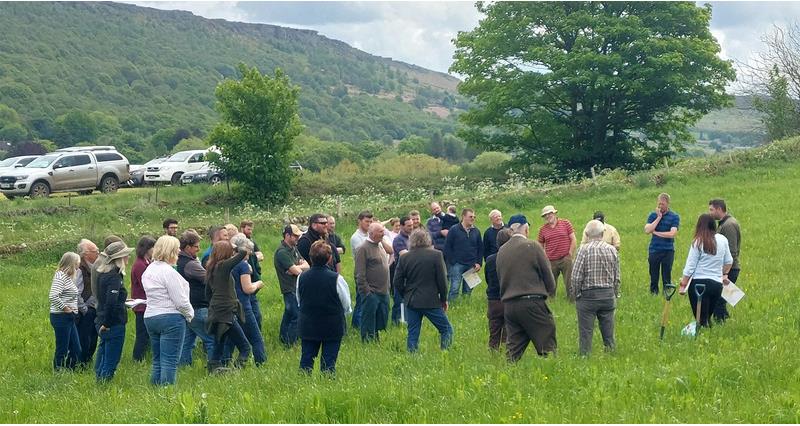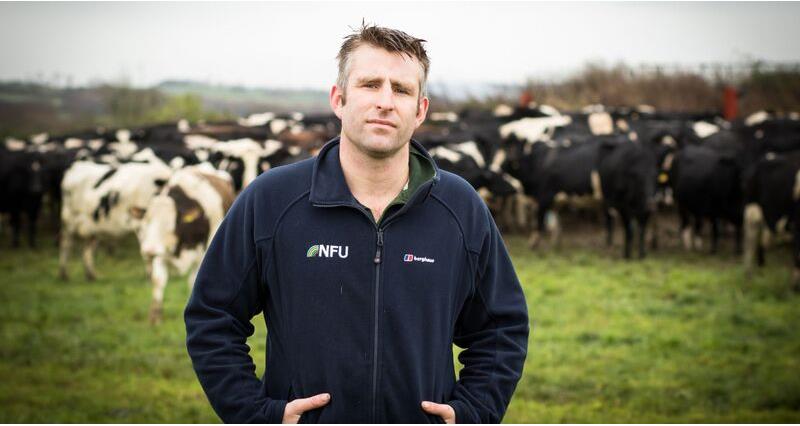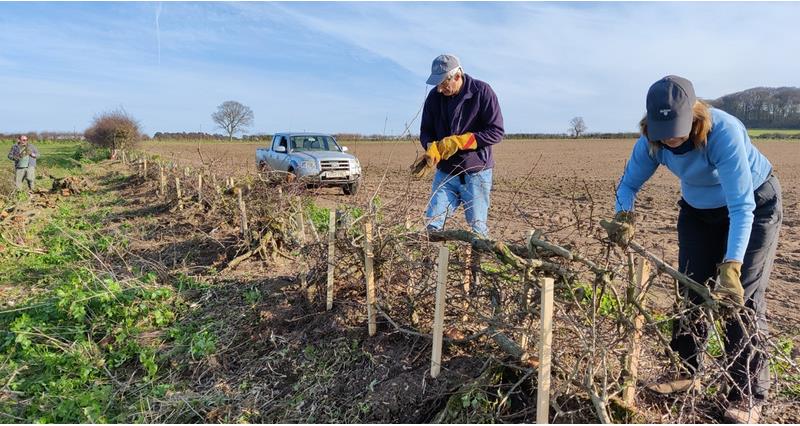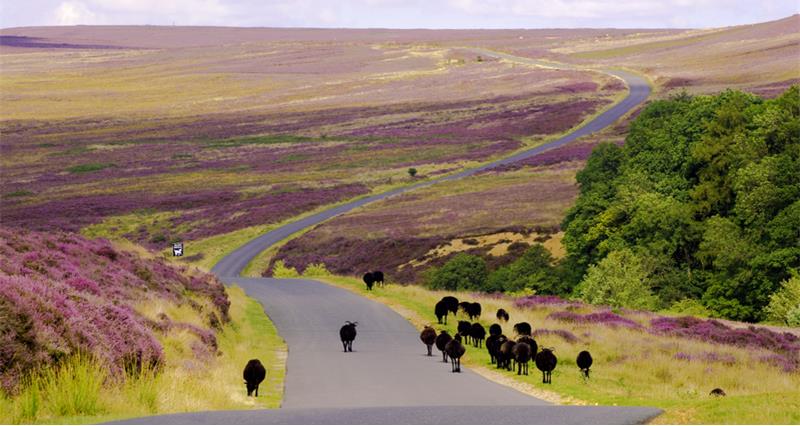What is the FiPL programme?
The FiPL (Farming in Protected Landscape) programme provides funding to support farmers and landowners in Protected Landscapes (National Parks, National Landscapes [AONBs] and Norfolk Broads) as part of Defra’s Agricultural Transition Plan in England.
The programme began in July 2021 and was set to run until March 2025. On 25 February 2025, the government confirmed that there would be a further extension to FiPL until March 2026.
The scheme will continue to operate in the same manner as previous years and is supported by an additional £30 million budget which is split across landscapes. This builds on the £100 million that had been committed to from the start of the programme until March 2025.
Although this is a Defra programme, the delivery and allocation of the funding to participants is operated by the National Park and National Landscape teams. The programme has been designed differently to agri-environment schemes; this enables projects to be specific to the area and the landowners within it.
The programme aims to create and improve Protected Landscapes while also testing this local delivery model and incorporating any successful learnings into the evolving ELMs (Environmental Land Management schemes).
FiPL can fund projects in Protected Landscapes that provide value for money and deliver against one or more of the following four outcomes:
- Supporting nature recovery.
- Mitigating against the impacts of climate change.
- Providing opportunities for people to discover, enjoy and understand the landscape and its cultural heritage.
- Protecting or improving the quality and character of the landscape or place.
How to apply
FiPL is open to all farmers and land managers (including from the private, public and charity sector) in a Protected Landscape. In some cases, the land outside the landscape may also be eligible if the project benefits the area and/or the Protected Landscape bodies’ objectives.
Projects should aim to deliver against one or more of the four programme outcomes (nature, climate change, people, and place).
Details about what each outcome should deliver are summarised below:

Nature outcome
Projects should deliver:
• A greater area of wildlife-rich habitat.
• Greater connectivity between habitats.
• Better management of existing habitats for biodiversity.
• Increased biodiversity.

Climate outcome
Projects should deliver:
• More carbon being stored and/or sequestered.
• Reduced flood risk.
• A better understanding among farmers and the public as to what different habitats and land uses can deliver for carbon storage and reduced carbon emissions.
• A landscape that is more resilient to climate change.

People outcome
Projects should deliver:
• More opportunities for people to explore, enjoy and understand the landscape.
• More opportunities for diverse audiences to explore, enjoy and understand the landscape.
• Greater public engagement in land management, for example through volunteering.

Place outcome
Projects should deliver:
• Enhancing or reinforcing the quality and character of the landscape.
• Historic structures and features being conserved, enhanced, or interpreted more effectively.
• An increase in the resilience of nature-friendly sustainable farm businesses, which contributes to a more thriving local economy (you must deliver this along with other outcomes).
The programme can fund up to 100% of the costs if the project does not deliver a commercial gain.
If there is a commercial gain (such as pop-up campsites) then funding can still be secured through FiPL, but only a proportion of the project can be funded.
FiPL focuses on projects that couldn’t be funded through existing government schemes. If a project could be supported through Countryside Stewardship for example, then applicants are encouraged to apply for that scheme.
The programme has a continuous application window and was set to run until March 2025. On 25 of February 2025, the government confirmed that there would be a further extension to FiPL until March 2026.
Interested applicants should contact their local FiPL officer who should support applicants to develop their project and submit an application.
Once submitted the application will be reviewed. If the project is over £10,000, this will be undertaken by the local FiPL assessment panel. The FiPL panels include a range of stakeholders including farming representatives; in some cases these are NFU members and staff.
If you would like to understand more about FiPL in your area or would like to discuss if the funding programme could support your project, contact your Protected Landscape team, in most cases this will be your local FiPL Officer.
The website and contact details for each National Park and National Landscape as well as more scheme information can be found on the government guidance here: GOV.UK | Get funding for farming in protected landscapes.
Each Protected Landscape website provides detailed information on how the FiPL programme is being delivered in that area.
Read our member stories:



Delivery
Defra continues to monitor how the FiPL programme is delivering and continues to undertake evaluations of the programme which the NFU has been involved in.
So far, the evaluations have found that the programme is popular, with participants welcoming the support of the FiPL officer and the flexibility of the programme. The monitoring data shows how the programme can deliver for the environment and the NFU would like to see more detail about how the programme is supporting farm productivity and viability during the agricultural transition.
Since its inception FiPL has:
- Engaged with more than 7,000 farmers and land managers, funding more than 4,600 projects.
- Created 41 new farm clusters and supported more than 100 existing ones.
- Planted around 100 miles of hedgerow, 100,000 trees and restored 8 miles of dry-stone walling.
- Created or restored 262 ponds.
- Undertook positive management on around 27,000ha of SSSIs.
- Created and improved more than 70,000 hectares of habitat for biodiversity.
- Funded more than 400 projects reducing carbon emissions and other forms of pollution.
- Restored, enhanced, and better interpreted more than 300 historic structures, buildings, and features.
NFU involvement
Although the NFU did not call for a specific funding stream for protected landscapes, we do recognise how this programme is benefitting some farms in these areas and we continue to engage with Defra to ensure the programme delivers for agriculture businesses.
The NFU’s engagement with Defra on FiPL policy has helped secure a rolling application window, an extended programme length (originally 3 years) and additional funding.
NFU members broadly welcome the funding and local support the programme brings, however experiences of its delivery are varied; this is often dependent on the individual landscape.
It is important that if Defra takes forward FiPL learnings into ELMs, it recognises the need to fairly and equally deliver funding which supports the farming businesses.
As well as being involved with the FiPL programme development, the NFU is also involved at a regional level, with some NFU members and staff sitting on the FiPL assessment panels which review project applications.
